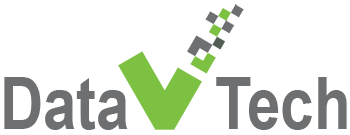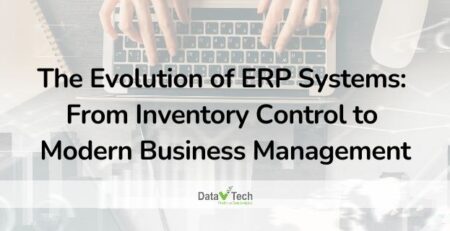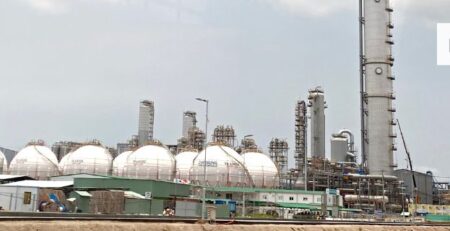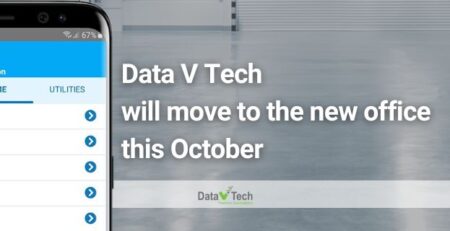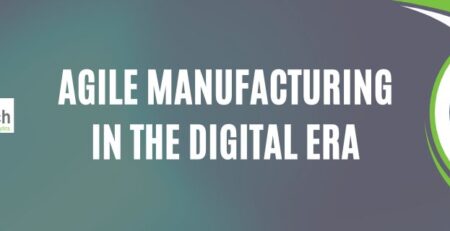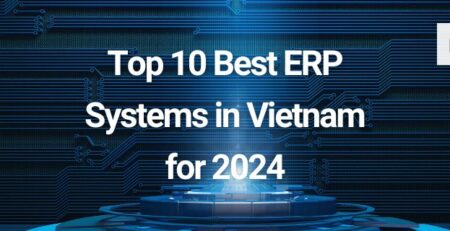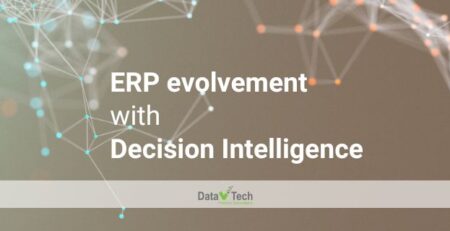ERP systems are essential for businesses in 2023 as they provide a comprehensive solution for managing complex operations, data, and transactions while improving efficiency, decision-making, collaboration, and customer experience. By implementing an ERP system, businesses can gain a competitive edge, reduce costs, and increase revenue, while ensuring compliance with regulations and standards. Here are some of the technology trends and advancements that are expected to shape the Enterprise Resource Planning (ERP) landscape in 2023:
Artificial Intelligence (AI) and Machine Learning (ML)
AI and ML have rapidly become essential to Enterprise Resource Planning (ERP) systems. These technologies enable organizations to automate routine tasks, reduce manual effort, and better use their data to drive informed decision-making.
One of the key benefits of incorporating AI and ML into ERP systems is improved data analysis and insights. With AI and ML algorithms, organizations can process and analyze large amounts of data more quickly and accurately than traditional manual methods, which leads to deeper insights into their operations. Therefore, they can identify trends and patterns and make informed decisions based on data-driven insights.
Another area where AI and ML can be leveraged within ERP systems is automation. AI and ML algorithms can support the automation of tasks, e.g., data entry, report generation, and invoice processing, freeing employees to focus on more strategic and value-adding tasks.
AI and ML also assist predictive analytics, helping organizations make predictions based on historical data and future trends and make informed decisions. For example, an ERP system incorporating AI and ML algorithms could help predict future demand for a particular product or service, allowing the organization to plan better and allocate resources.
In summary, integrating AI and ML into ERP systems transforms how organizations manage their operations and make decisions. By leveraging these technologies, organizations can gain a competitive advantage and drive their business forward.
Cloud-based ERP
Cloud-based ERP solutions are believed to continue to gain momentum in 2023 and beyond. The trend toward cloud computing drives the adoption of cloud-based ERP systems as organizations seek to benefit from increased scalability, flexibility, and cost savings.
One of the key benefits of cloud-based ERP solutions is that they provide organizations with a more flexible and scalable infrastructure. With a cloud-based ERP solution, organizations can easily add or remove users or upgrade their systems to meet changing business needs without investing in new hardware or IT infrastructure.
Besides, cloud-based ERP solutions can contribute to IT cost reduction. With a cloud-based ERP solution, organizations can avoid additional investment in expensive hardware or IT infrastructure and instead pay for the services they use on a subscription basis. They can enjoy significant cost savings while reducing the burden on their IT teams.
In addition, cloud-based ERP solutions can provide organizations with improved security and data protection. Data stored in secure, centralized data centers can help organizations mitigate the risk of data breaches and loss while accessing their data effortlessly from anywhere, at any time.
In short, cloud-based ERP solutions’ popularity will continue to increase in 2023 as organizations seek to gain the benefits of increased scalability, flexibility, and cost savings. By adopting a cloud-based ERP solution, they can improve their operations, reduce costs, and drive their business forward.
Internet of Things (IoT)
IoT facilitates the integration of physical assets into ERP systems, enabling organizations to collect and analyze real-time data from their operations. It refers to the expanding network of physical devices, vehicles, and other items connected to the internet, enabling data connection and exchange between them.
In the ERP context, IoT has the potential to revolutionize the way organizations collect and analyze real-time data from their operations. For example, with IoT-connected devices, organizations can collect data on everything from production output to inventory levels to optimize operations and make informed decisions.
IoT also contributes significantly to the improvement of supply chain management. With IoT-connected devices and sensors, organizations can monitor their supply chain in real time, ensuring they have the right products at the right place and time. They can then reduce waste, minimize downtime, and increase efficiency.
Moreover, IoT can help organizations enhance customer experiences by providing real-time data on everything from product delivery times to service quality. Meanwhile, they can respond quickly to customer needs and provide more personalized and efficient service.
Thus, by leveraging IoT technology, organizations can gain a competitive advantage, improve their operations, and drive their business forward.
Automated Business Processes
ERP systems will continue to be improved with more sophisticated automation capabilities, streamlining business processes and reducing manual effort. Automation has assisted many companies in simplifying and optimizing many business processes, from data entry and report generation to invoicing and supply chain management.
First, automated business processes can increase efficiency. By automating routine tasks, organizations can reduce manual effort, minimize errors, and free employees to focus on more strategic and value-adding tasks. Those benefits can result in significant time and cost savings while improving overall productivity and performance.
Second, business automation also raises data accuracy. With automated processes, organizations can reduce the risk of manual errors, ensuring their data is accurate and current. As a result, they can make informed decisions, identify trends and patterns, and optimize their operations.
Furthermore, automation can help organizations to improve their compliance and governance. By automating processes and establishing standardized procedures, organizations can reduce the risk of non-compliance and ensure that their operations align with industry regulations and best practices.
As a result, more organizations seek automation to streamline and optimize their operations. Organizations can improve efficiency, accuracy, and compliance by leveraging automation technology and driving their business forward.
Mobile and Collaborative ERP
Mobile and collaborative ERP refers to using mobile devices and collaboration tools to access and share ERP data and functionality across an organization. The demand for mobile and collaborative ERP solutions will continue to grow, enabling organizations to access critical data and perform business operations from anywhere at any time.
Here are five key ways that mobile and collaborative ERP can benefit businesses:
- Increased Flexibility: Mobile ERP allows employees to access ERP data and functionality from anywhere, anytime, using their mobile devices. This can increase flexibility and productivity, as employees can work remotely or on the go.
- Improved Collaboration: Collaborative ERP tools allow employees to share data and collaborate on projects in real time, improving communication and reducing errors.
- Faster Decision-Making: Mobile and collaborative ERP tools can provide real-time access to data, which can help managers and executives make faster, more informed decisions.
- Better Customer Service: These tools can help employees respond to customer inquiries more quickly and efficiently, improving customer satisfaction.
- Reduced Costs: Mobile and collaborative ERP tools can reduce the need for expensive hardware and software, as employees can access ERP data and functionality using their existing mobile devices. This can help businesses to save money on IT costs while improving productivity.
Overall, mobile, collaborative ERP is a trend that is likely to continue growing in popularity as businesses look for ways to make their ERP systems more accessible and collaborative in an increasingly mobile and connected world. (View Pocket V – Data V Tech’s ERP on the go.)
Blockchain
Integrating blockchain technology into ERP systems is an emerging trend that has the potential to revolutionize the way businesses manage their supply chains and financial transactions. Blockchain is a distributed ledger technology that enables secure, transparent and tamper-proof transactions between multiple parties without intermediaries. Integrating blockchain technology into ERP systems will enhance data security and improve the tracking of transactions while reducing the risk of fraud and errors, in particular:
- Enhanced Data Security: Blockchain technology provides a secure and tamper-proof way of storing and sharing data, which can help to prevent fraud and data breaches.
- Improved Traceability: Using blockchain technology to record transactions and data, businesses can create an auditable and transparent record of their supply chain activities, from raw material sourcing to final product delivery.
- Reduced Costs: Blockchain technology can help to reduce the costs associated with intermediaries such as banks and other financial institutions, as transactions can be conducted directly between parties.
- Faster Transactions: Blockchain technology enables real-time, peer-to-peer transactions, which can help to speed up the processing of orders and payments.
- Improved Trust and Collaboration: By using blockchain technology to record transactions and data, businesses can build trust and collaboration with their partners and customers, leading to more efficient and effective supply chain management.
Predictive Analytics
Predictive analytics uses statistical and machine learning algorithms to analyze historical data and predict future events or trends. It involves using data, statistical algorithms, and machine learning techniques to identify the likelihood of future outcomes based on historical data. Predictive analytics will become more prominent in ERP systems, allowing organizations to make predictions based on historical data and future trends and make informed decisions.
First, predictive analytics can help businesses to make data-driven decisions by providing insights into future events and trends, allowing them to plan and act accordingly. By analyzing customer data, companies can use predictive analytics to identify customer needs and preferences and personalize their marketing and sales efforts accordingly.
Besides, predictive analytics can help businesses to optimize their operations by identifying potential bottlenecks, predicting equipment failures, and optimizing supply chain management. This technology can help companies to identify potential risks and take proactive measures to mitigate them, such as identifying potential fraud or detecting cybersecurity threats.
Eventually, predictive analytics can help businesses to identify new revenue opportunities by identifying market trends and customer needs and developing new products or services accordingly.
These ERP trends will significantly impact how organizations manage their operations and make decisions in 2023. Overall, they can leverage technology to enhance their ERP systems and drive their business forward by staying current with these developments.
